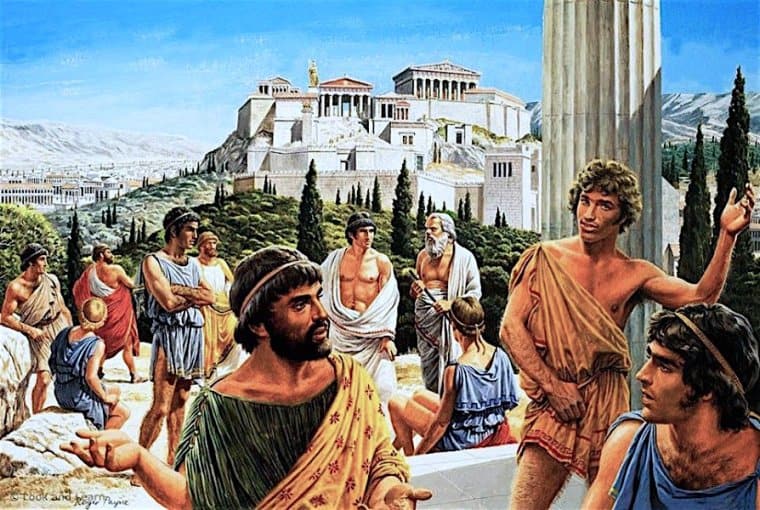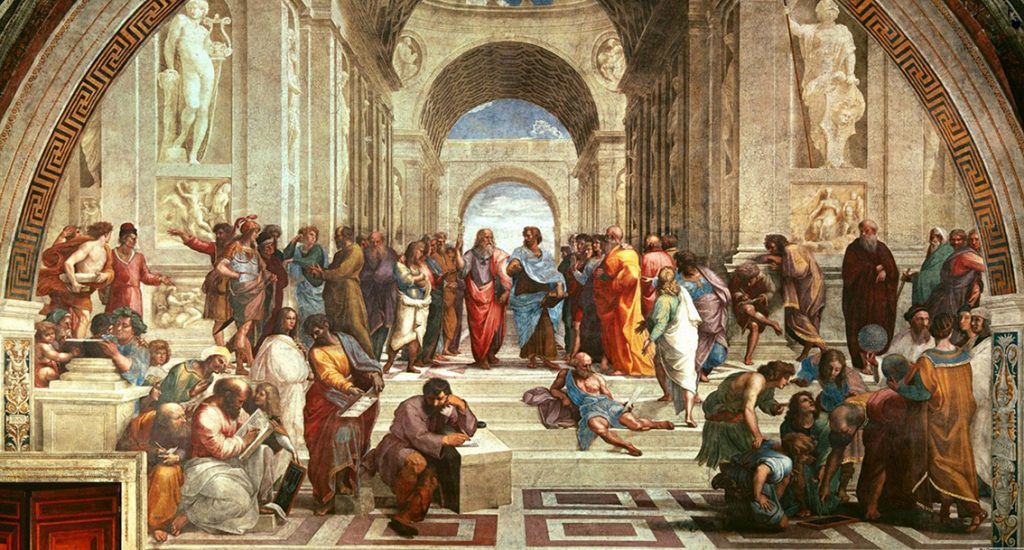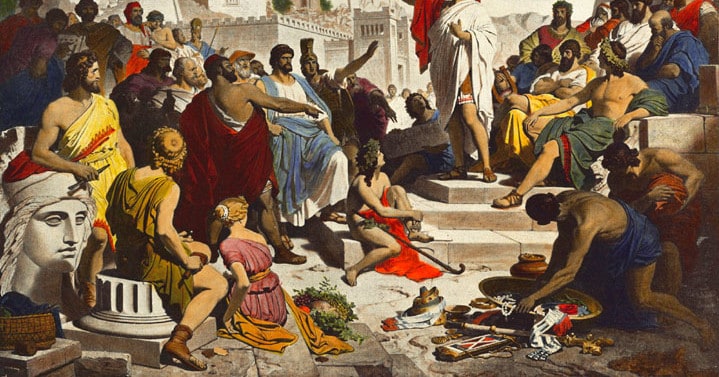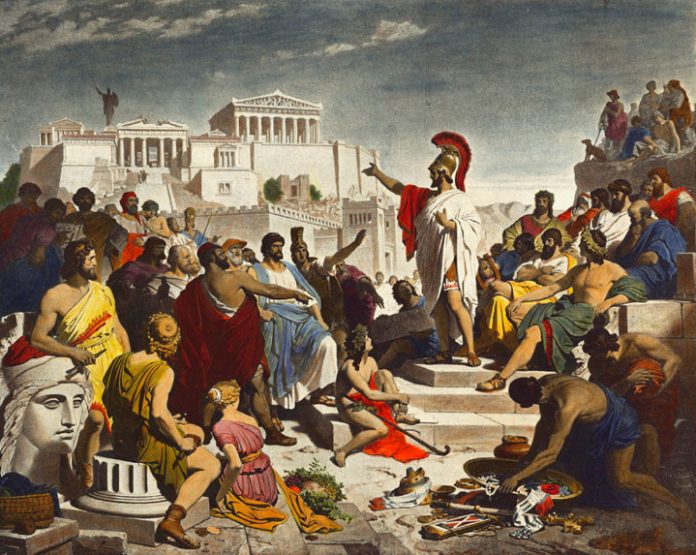The story of the ancient Greeks is considered as one the most important and difficult success stories in world history. Greece is made up of a small number of people, living in a poor country with barely enough resources to meet the demands of its growing population. It also had to contend with hundreds of uncooperative and fighting states. Yet, despite these seemingly impossible odds, Greece went on to create the most notable civilization.
The ancient Greeks manifested great creativity, adaptability and versatility. During the Bronze Age (c. 3000-1150 b.c.), most Greeks were poor and uneducated. Their methods were considered backward and they occupied lands which could not be cultivated. The Greeks, however, managed to develop a culture uniquely its own and a power base at Mycenae (c. 1600-1100 b.c. ).

Thanks to its wealthy and influential neighbors, the ancient Greeks were able to learn industrial skills. The early Greeks borrowed their skills and practices from their neighbors but eventually developed its own cultural identity. Pomeroy, et al states that “their limited natural resources forced the Greeks to look outward, and they were fortunate in being within easy reach of the Mediterranean shores of Asia, Africa, and Europe.”
Athenian Democracy
The Athenian democracy often referred to as classical democracy was the democratic structure formed in the Greek city-state of Athens and its surrounding province Attica. Athens was among the first to establish democracy. Athenian democracy gained prominence in ancient times. As a matter of fact, most Greek cities patterned their democracy after Athens. Not one though was able to equal Athens’ power and economic success.
Athens’ democracy was characterized by direct vote on legislation and executive bills. They did not elect representatives to vote for them. The people of Athens themselves would vote and determine the laws to pass. Even in the adjunct territory of Attica, all inhabitants enjoyed the same privileges as the people in Athens. The full participation of people from all economic classes that shape the legislature showed that democracy was truly at work in Athens.

Athens dominance was partially attributed to its acquisition of Attica which resulted from the synoecism or union under Theseus. It is unclear though how the unification came about since Eleusis was an independent city-state during the eight century BC.
The establishment of Athenian democracy was brought about by people from various periods participating towards the creation of the democratic system. Most notable among these Athenians and lawmakers were Solon (around 590 BC), Cleisthenes (508 BC), and Ephialtes (462 BC). Historians, however, found it hard to classify the democracy they established and represented.

Some would begin at Cleisthenes’ period because Solon’s version of democratic constitution was dissolved and replaced by Pisistratus’ dictatorship. Ephialtes on the other hand amended the Cleisthenes’ constitution. Pisistratid dictatorship ended when Hippias’ brother was assassinated by Harmodius and Aristogeiton.
The actual revolution though which toppled the dictatorship took place four years later. This heralded the return of Athenian democracy. During Pericles’ rule ( 461 BC to 429 BC), Athens enjoyed the greatest and longest-lasting democracy. During his time arts and literature flourished and Athens attained a reputation of unrivaled splendor.
When Pericles died, Athenian democracy was threatened twice by oligarchic revolution during the Peloponnesian War. Athenian democracy underwent changes until Eucleides re-established it in 403-402 BC. In 322 BC Macedonians subdued democratic rule. Later, Athenian systems were reinstated but it was unclear if they practiced real democracy again.


















